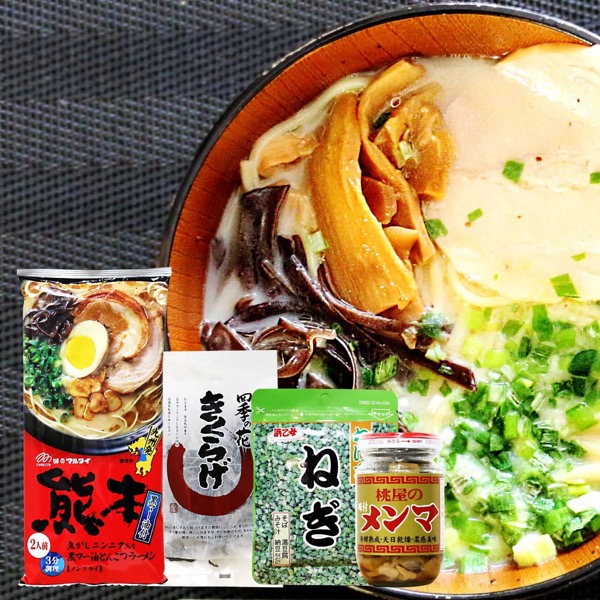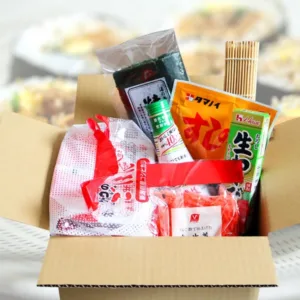How to make
This recipe is different from the way it is described on the package.
However, I think it makes for a better ramen, so please give it a try.
Simply put, instead of making ramen soup with the water you boiled the noodles in, boil the water for the soup properly. That’s all there is to it.
This is the ramen I’ll be using.

This time, we will use this “Tonkotsu ramen with burnt garlic and ma-yu”. Unlike most instant ramen, it is made with non-fried noodles.
Soak the dried kikurage in water.
Again, since this is a tonkotsu ramen, we will use kikurage as the garnish.
It takes about 15 minutes to soak the kikurage in water and return it to its original state.
It is best to soak them in water first.
Time is of the essence for good ramen.
For example, if you boil the noodles a little too long, the noodles will soften quickly.
The same is true for pasta. The noodles taste better when they are a little hard.
Therefore, as soon as you boil the noodles, put them in the soup so that they are ready to eat.
Boil some water.
The amount of hot water for one serving of ramen is about 500ml.
Roughly 2cups and a bit.
Add seasoning.
While the water is boiling, put the powdered soup and seasoning oil into a bowl.
If you are making different kinds of ramen at the same time, make sure you do not mistake the powdered soup and seasoning oil for each.
(I’ve had it happen before. I put the wrong kind of seasoning oil in the wrong kind of powdered sauce.)
Cut the kikurage mushroom for the filling.
Cut the water-soaked kikurage into pieces.
The size of the pieces can be as small or as large as you like; kikurage is crunchy and has a strong presence even when cut into small pieces.
When the water comes to a boil, add the noodles.
When the water comes to a boil, add the ramen noodles.
Since the ramen noodles are immersed in the warm broth, the noodles tend to become soft.
For this reason, the package says 3 minutes, but it is best to use about 2 to 2 1/2 minutes to make the noodles a little firmer.
Stir gently.Be careful not to let the water overflow.
Transfer the noodles to the soup and serve with the ingredients.
After the ramen noodles are boiled, transfer them to the bowl of soup. As I mentioned earlier, time is of the essence with ramen. Transfer the noodles quickly and serve them.
Arrange the ramen ingredients that you cut earlier, such as kikurage, menma, chashu, and negi.
The order does not matter at all.







Reviews
There are no reviews yet.